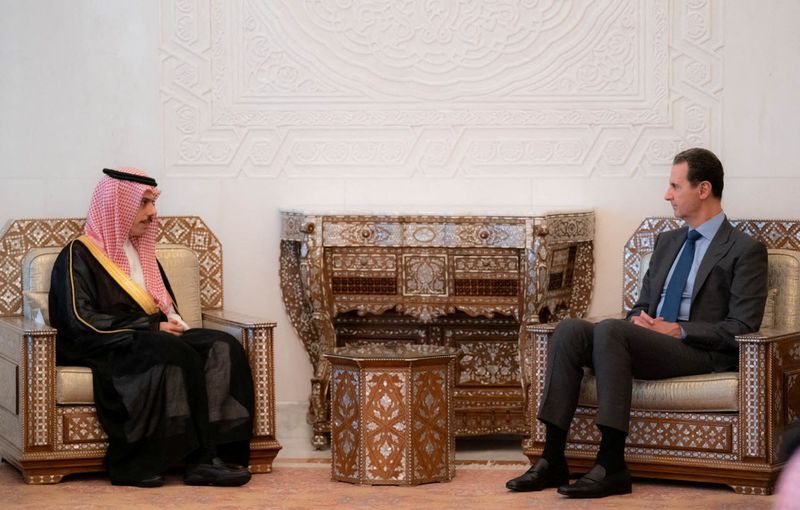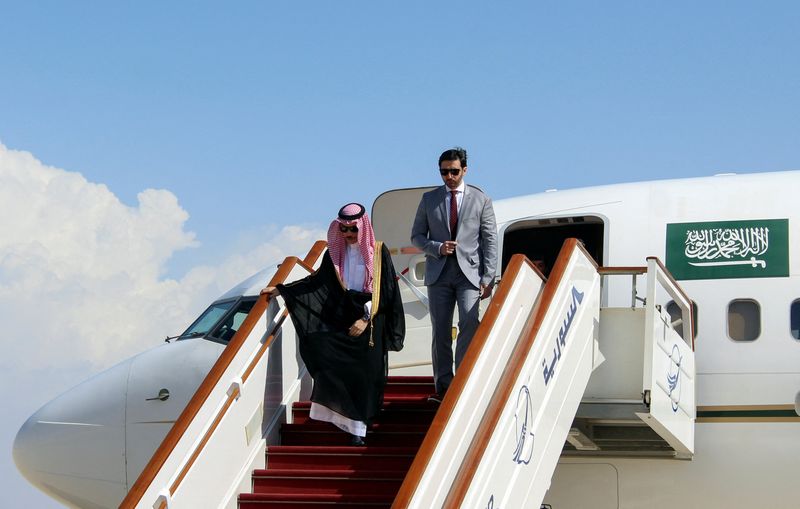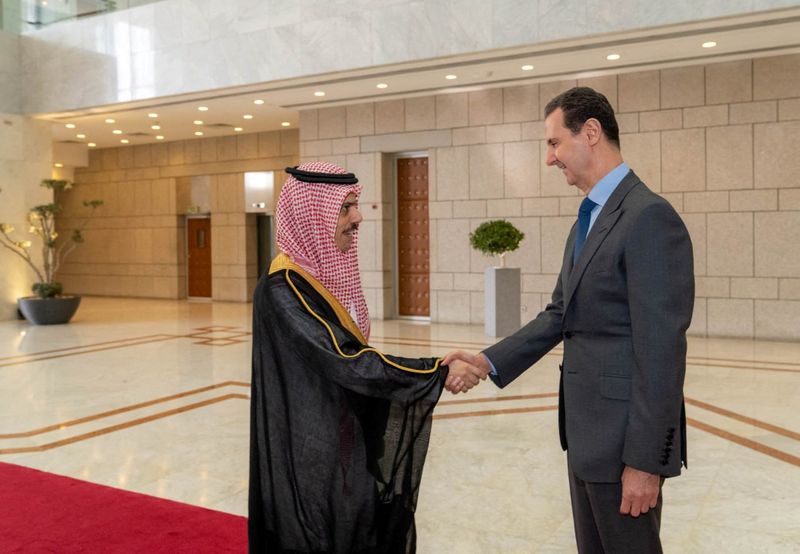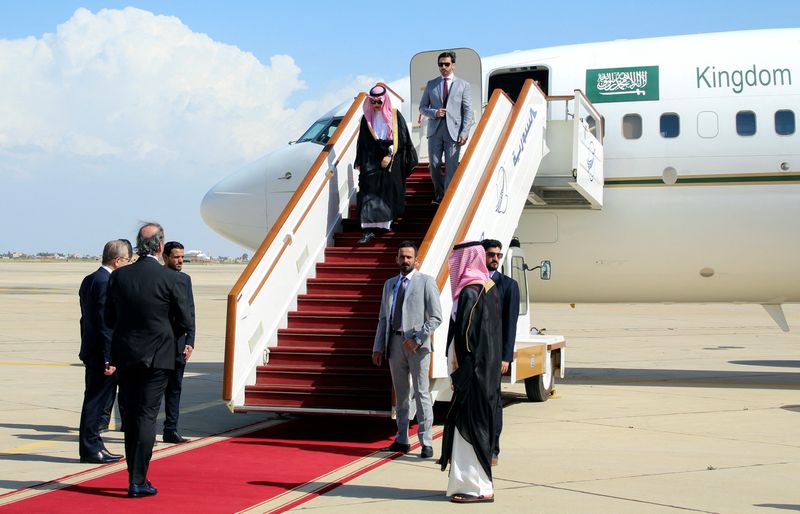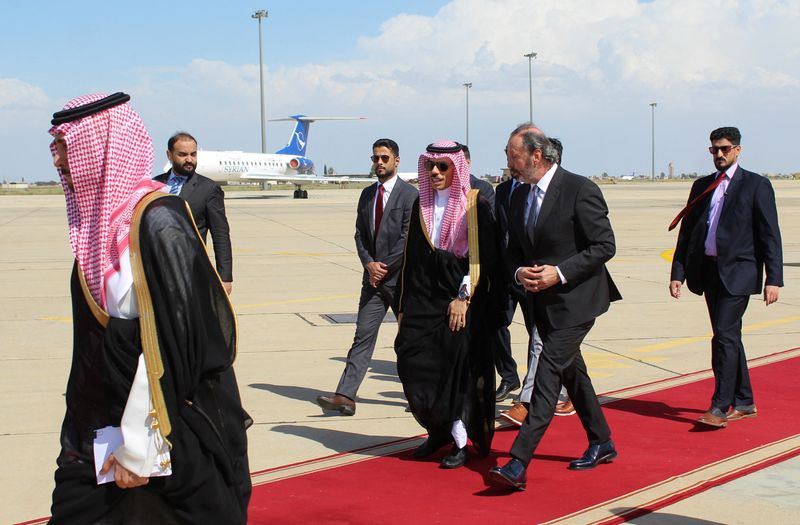DAMASCUS (Reuters) -Syrian President Bashar al-Assad received Saudi Foreign Minister Prince Faisal bin Farhan in Damascus on Tuesday in the most significant step yet towards ending Syria’s decade-long regional isolation, and at a time of wider rapprochement in the region.
It was the first visit of a top diplomat from Arab powerhouse Saudi Arabia to Damascus since ties were ruptured following Assad’s deadly crackdown on protesters in 2011 – violence that escalated into a decade-long civil war.
The meeting discussed steps needed for a political solution to Syria’s conflict that would preserve its Arab identity and return it to “its Arab surroundings”, Saudi state media said.
Assad said the kingdom’s “open and realistic policies” benefited the region, Syria’s state news agency reported.
The statements made no mention of an Arab League summit that Riyadh is due to host next month. On Friday, Gulf Arab foreign ministers and their counterparts from Egypt, Iraq and Jordan discussed Syria’s possible return to the body at a meeting in Saudi Arabia, but no agreement was reached.
Following the security forces’ crackdown on demonstrators in 2011, Syria’s membership in the Arab League was suspended and several Gulf states – including Saudi Arabia – began backing rebel groups fighting to oust Assad from power.
Assad, with the help of his main allies Iran and Russia, later regained control over much of Syria. Saudi Arabia has said in recent months that isolating him was not working.
The two sides agreed to resume diplomatic ties, and sources had earlier told Reuters that bin Farhan would travel to Damascus to invite Assad to the Arab League summit.
While some countries like the United Arab Emirates have also mended ties with Damascus, others such as Qatar remain opposed to normalisation and to readmitting Syria to the Arab League in the absence of a political solution to the conflict.
Syria’s foreign minister, who recently visited Saudi Arabia, Algeria and Tunisia, has said his country’s return to the Arab League would be “almost impossible before correcting bilateral relations”.
The thaw in relations between Riyadh and Damascus is part of a wider trend that has seen Saudi Arabia and main rival Iran agree to restore ties in a regional realignment aimed at easing tensions as economic priorities take precedence for Gulf states.
(Reporting by Firas Makdesi in Damascus, Omar Abdel-Razek in Cairo and Ahmed Elimam and Jana Choukeir in Dubai; writing by Maya Gebeily and Ghaida Ghantous; editing by Frank Jack Daniel, Nick Macfie, Mark Heinrich and Jonathan Oatis)
